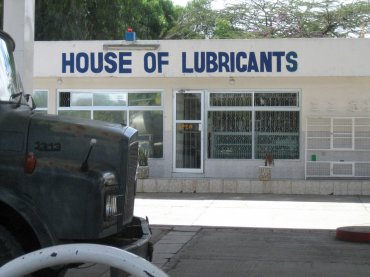
Tanzanias Energy and Water Utilities Regulatory Authority set March 31 as the deadline for all persons dealing in lubricants in the country to register their products with the agency or face penalties. This includes lubricants produced domestically and those imported into Tanzania.
All lubricants and oil importers must firstly get registration from EWURA, and all imported lubricants and oil must bear a Tanzania Bureau of Standard mark or be approved by TBS, meaning all products must get standard clearance on their entry [into Tanzania]. Once the time for registration elapses – which is March 2018 – all persons trading without registration will face heavy penalties, including closure of their business, Titus Kaguo, communications and public relations manager at the regulatory authority, told Lube Report EMEA.

Photo: Eric Ulken/ Flickr
House of Lubricants is a series of gas stations that sell motor oil in Tanzania. Tanzanias Energy and Water Utilities Regulatory Authority set March 31 as deadline for all persons dealing in lubricants in the country to register their products with the agency.
Kaguo explained that the new policy became necessary to stem the growing amount of substandard lubes on the Tanzanian lubricant market. Kaguo emphasized that the authority has developed roles that will support the regulation of lubricants.
The countrys lubricant segment stakeholders emphasized that the new policy would help distinguish genuine players from seasonal operators, whose motive is to make profit from the lubricant market without respect for standards. Irfan Khan, general manager for General Petroleum in Tanzania, said the new regime will discourage those importing substandard lubes and those that are not properly registered in the tax systems of the country.
It will pave the way for genuine and serious lube industry players – whether they are importers or local manufacturers – and also put a stop to individuals and seasonal importers who are not contributing to the growth of the lubricant business in Tanzania, Khan said in an interview.
Maestro Oil and Gas Solutions Managing Director Ashish Goyal agreed, contending that the new policy will prevent manufacturers of fake and substandard lubricants from accessing the Tanzanian lubricant market. It is a good development for the Tanzanian lubricant market because it is going to protect genuine lubricant players on the market and chase away those fraudulent players who are infesting the market with substandard lubes, he said in a phone interview.
Kaguo noted that the regulatory authority has standards for petroleum products such as petrol, diesel and kerosene, and is poised to bring the same type of standards to the lubricant segment whose market has been distorted by substandard products.